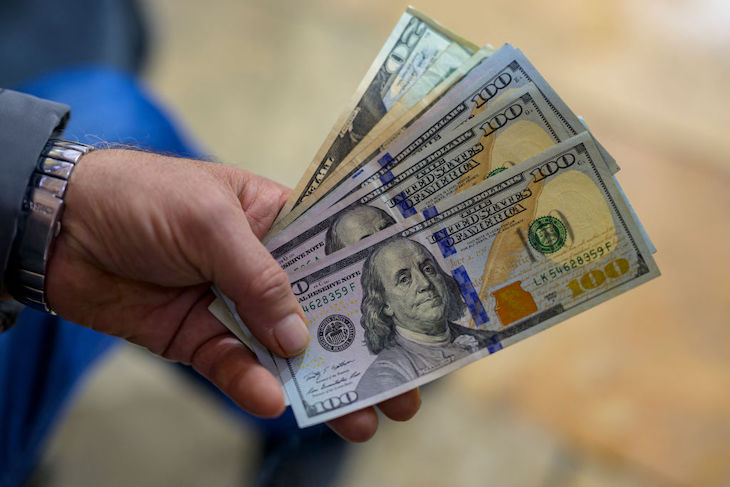Donald Trump says his tariffs are about liberation. But his aggressive turn toward protectionism may signal the beginning of a shift away from the foundations that have upheld American prosperity for decades.
The US dollar’s status as the world’s reserve currency has long enabled the United States to consume far more than it produces, to run massive deficits without consequence, and to project unparalleled geopolitical power. Trump’s decision to slap tariffs of up to 25 per cent on imports could put that all at risk.
When French president Valery Giscard d’Estaing referred to the United States’ ‘privilège exorbitant‘ he was not referring to America’s central position in the post-WW2 world order. Giscard was talking about the substantial extra wealth enjoyed by the US courtesy of the US dollar, specifically its central role in the world’s economy, as well as its position as the main ‘reserve currency’ held by foreign banks and Central Banks.
Most non-US financial institutions and even many private individuals keep a ‘rainy day’ stock of US dollars. As a result, Americans can enjoy, for example, $100 worth of goods or services provided by foreign residents in exchange for the tiny cost of printing another $100 bill that the foreign resident has, up to now, been happy to hang on to.
In contrast, Brazilians, South Africans, Swiss and Swedes must get their hands dirty in actually providing goods and services to earn the money that pays for what they import.
Beyond simply running trade deficits and thereby placing dollars into the hands of non-residents, US governments have gone much further than that with the issuance of debt securities (bonds). The US national debt currently stands at around $36 trillion (£28 trillion) with about a quarter of that held by foreign financial institutions including foreign Central Banks. The largest holders are in China, Japan and the UK. China is well aware of the power that they can wield as a substantial holder of US debt. China, Russia and others too have ambitions to bring about the replacement of the US Dollar as the linchpin of the world’s finances.
The massive ‘splurge’ of American IOUs – bonds that can be redeemed as dollars – came about after the collapse of the Soviet Union in 1991, when the US became the world’s sole ‘superpower’ and the world’s policemen and guarantor of ‘fair play’. This role comes with an immense cost, to which President Trump has often referred, but also confers the immense privilege referred to as ‘Exorbitant’ by the late French president.
Trump’s decision to ‘weaponise’ the US dollar and US banking apparatus has dented his country's reputation as a trusted superpower. The loss of this trust could prove hugely costly to the US.
Trump clearly knows what’s at stake. The President has warned countries in the BRICS group (originally Brazil, Russia, India, China, and South Africa but now increased to 11 countries with 7 more waiting to join) against replacing or even seeking to replace the U.S. dollar as the world’s reserve currency. He stated that any country attempting to create or back a new currency to replace the dollar would face 100 per cent tariffs.
The dominance of the dollar and its consequently higher-than-natural value is a ‘curse’ from the point-of-view of US manufacturing employment. However, it also continues to finance the deficit by attracting foreign investors to US debt and equity markets. It is also a natural consequence of the US's central role in the world’s economy.
There is no doubt that the US would gain manufacturing jobs if the dollar were to lose its Reserve Currency status and find a more natural (lower) exchange rate level compared to other currencies. But if the dollar became ‘just another currency’, a change which would most likely happen for political rather than purely economic reasons, the US Treasury would have a much harder task continuing to finance the national debt.
The US, like many heavily indebted countries, including the UK, has already lost its AAA credit ratings and the ratings would deteriorate further if the dollar lost its unique status. Credit Ratings are not only about how much debt you have; they are just as much about how likely it is that you can continue to attract lenders in the context of your increasingly frequent need to refinance that indebtedness.
Trump’s threats of 100 per cent tariffs on nations daring to challenge dollar dominance play well to domestic audiences, but they risk accelerating the very outcome he hopes to prevent. In attempting to strong-arm the world into maintaining the US’s privileged status, his administration may only hasten its unravelling.







Comments